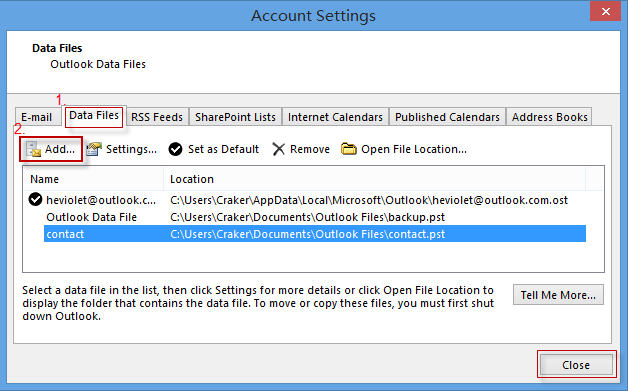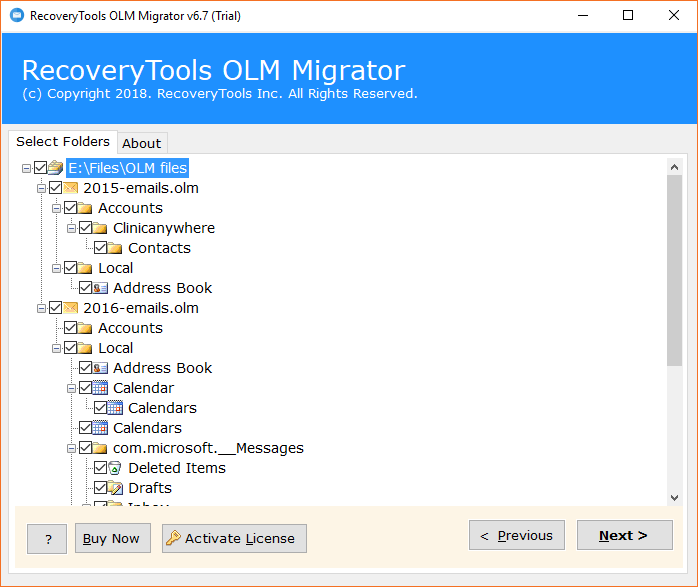
- HOW TO IMPORT CONTACTS INTO OUTLOOK MICROSOFT EXCHANGE FOR MAC
- HOW TO IMPORT CONTACTS INTO OUTLOOK MICROSOFT EXCHANGE DOWNLOAD
- HOW TO IMPORT CONTACTS INTO OUTLOOK MICROSOFT EXCHANGE WINDOWS
If an exercise requires an item that you don’t have, you can complete the exercise in which you create the item before beginning the current exercise, or you can substitute a similar item of your own.

The exercises in this chapter also use Outlook items you created in exercises in previous chapters.
HOW TO IMPORT CONTACTS INTO OUTLOOK MICROSOFT EXCHANGE DOWNLOAD
For more information, see Download the practice files in this book’s Introduction. To complete the exercises in this chapter, you need the practice files contained in the Chapter09 practice file folder. Finally, you’ll personalize the content of an electronic business card. You’ll locate specific contact records by using the Search feature and the commands available on the new Search tool tab.

Then you’ll create a contact group and send a message to a subset of the group. You’ll import a fresh set of contact records into the custom address book, and then export a subset of the records. In this chapter, you’ll first organize the contact records associated with this book into an individual address book. You can also display images, such as photographs or corporate logos on business cards, to provide additional information when you view contacts in the default Business Card view. Within each contact record, you can make preferred contact information easily discoverable by displaying it on the electronic business card version of the contact record. The Search feature of Outlook 2013 makes it easy to find a specific contact record based on any text within the contact record or any attribute, such as a color category that you assign to it. You can add contact records to a custom address book either by moving contact records that are already stored in Outlook, or by importing contact records from another program or file. You can also create purpose-specific address books and organize contact records within the address books to make it easier to locate specific contact records. You can simplify communications with specific groups of people by creating contact groups to which you can address messages as you would an individual contact. The more people you deal with on a daily basis, the more important it is to keep your contact list organized. Being able to organize and quickly locate specific contact information is important for efficient communications. Use the Export-Mailbox shell cmdlet from Microsoft Exchange PowerShell to export mailbox data to an Outlook data (.pst) file.If you regularly save contact information for business and personal contacts in Microsoft Outlook, you will quickly accumulate a large collection of contact records. Export data from Microsoft Exchange to an Outlook data (.pst) file
HOW TO IMPORT CONTACTS INTO OUTLOOK MICROSOFT EXCHANGE WINDOWS
To do this, the Windows client connects to the Exchange Server by using either Cached Exchange Mode or Online mode.

If the data is available in a mailbox that is located on an Exchange Server, the Outlook for Windows client can access the data. Synchronize data with Microsoft Exchange Server These methods require that you use Microsoft Exchange Server.
HOW TO IMPORT CONTACTS INTO OUTLOOK MICROSOFT EXCHANGE FOR MAC
However, there are several methods that you can use to transfer data from Outlook for Mac to a Windows-based Outlook client. Microsoft Outlook for Windows doesn't support. However, you receive the following error in Outlook for Windows: olm file that was exported from Outlook for Mac.

You try to transfer data from Outlook 2016 for Mac or Outlook for Mac 2011, such as email and contacts, to Outlook for Windows.


 0 kommentar(er)
0 kommentar(er)
